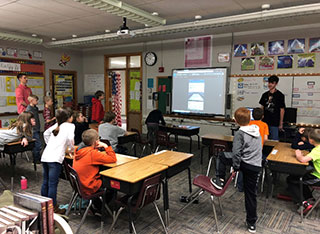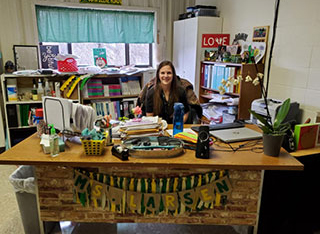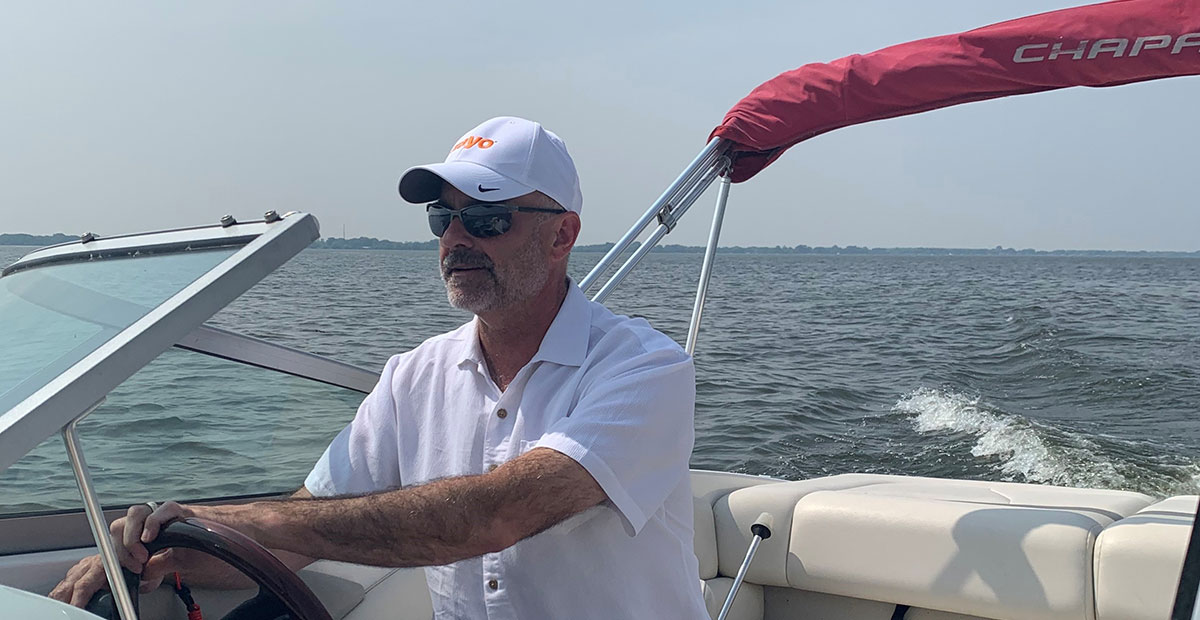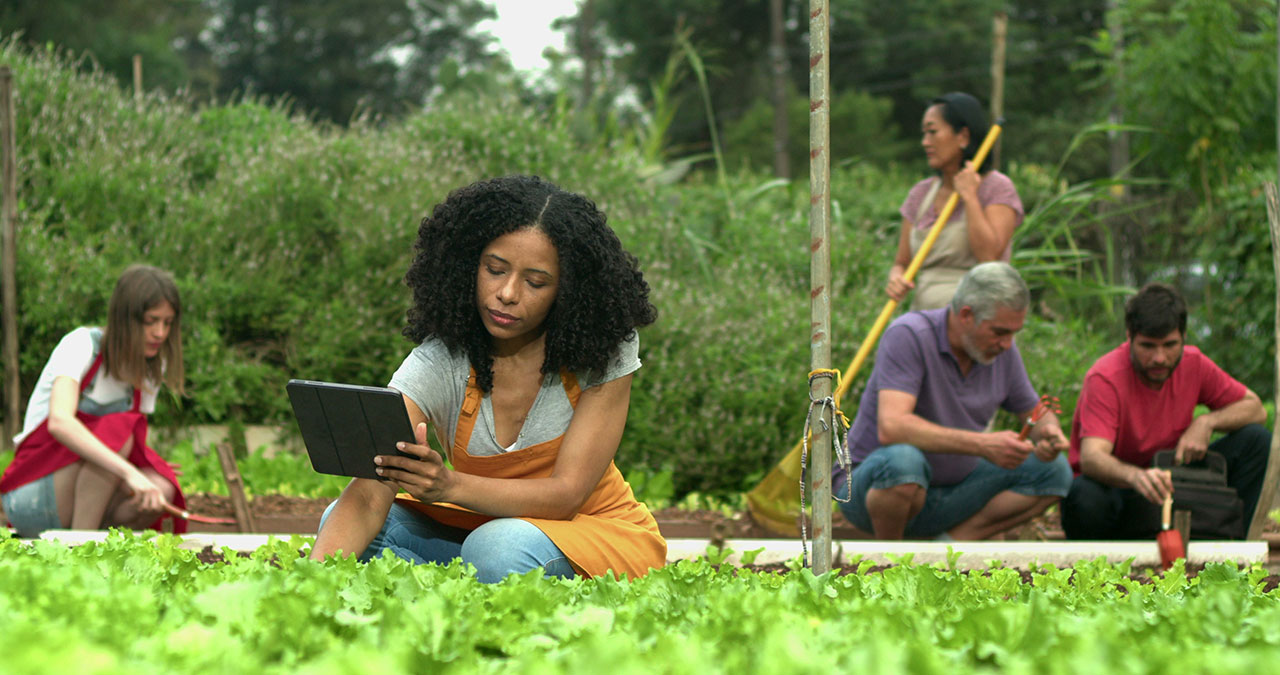Debunking Myths: Diversity and Impact in Rural Schools
Rural Schools Collaborative
MADISON, WI. JUN. 21, 2022 Rural Schools Collaborative (RSC) is a national nonprofit focused on creating sustainable rural communities. RSC was originally launched in Cambridge, WI, and is a proud partner of the Wisconsin Office of Rural Prosperity. Much of RSC’s work focuses on rural schools and teacher advocacy and storytelling. Through our work we’ve learned that, while narratives can be a powerful tool for change, we often bump into assumptions or generalizations in the stories that are told about rural places.
One of the most common myths about rural education is that rural schools are not diverse. Despite numerous studies showing evidence to the contrary, many Americans have a stereotypical view of rural America, envisioning it as a monolith and imagining it to be populated by predominantly white, lower-income people employed in agriculture. And while this picture may be true for some places, recent demographic data clearly shows that rural America is becoming increasingly diverse.
A recent report from the Brookings Institution noted that people of color now represent 24% of rural America. And, a census analysis from the Daily Yonder shows that diversity increased among the rural adult population in over 95% of the nation’s rural counties in the last 10 years.
The Daily Yonder analysis also shows that 52% of rural counties exhibited growth in Black or African American populations and that the people of color and Hispanics demographics expanded by 22% among the adult rural population. Furthermore, the number of rural residents who identify as multiracial increased by 148%.
These statistics are particularly relevant to the Upper Midwest, where rural counties in Wisconsin and Northern Michigan have experienced the most population growth (the adult minority population of Lake County, MI, grew by 11%, for example).
And rural America is diverse in more than just racial makeup. In addition to the growth in racial and ethnic diversity, recent studies have reported that:
- Immigrants account for the largest share of recent rural population growth
- 20% of LGBTQ+ Americans live in rural areas
- 17% of rural Americans report having a disability
These statistics reveal a portrait of rural America that is increasingly diverse and complex.
So, what does this have to do with schools? The complexity of rural communities is also reflected in the student populations, and we must be intentional about supporting a culturally responsive and inclusive classroom. In short, thriving rural landscapes must include sustainable and healthy schools.

Public schools hold the potential to attract or retain caring young people to rural regions.
Schools Are Key to Healthy Rural Communities
As corporatization, consolidation and budget cuts have reduced the number of rural small businesses, healthcare facilities and social service programs, public schools are often the only remaining vestige of rural “institutional infrastructure.” Public schools are also often one of the largest employers in rural communities. Therefore, if we are serious about developing sustainable rural communities, public education must be in the middle of that conversation.
Public schools hold the potential to attract or retain caring young people to rural regions. This is an issue of the utmost importance, as loss of younger residents has taken a toll on many small towns and remote places. Not only does the loss of young talent affect community growth and the local economy, but communities lose a large part of their collective “soul” when the aspirations and energy of younger citizens are absent.
All of this culminates in the sense that rural schools are truly a bellwether for the overall health of a rural place or region. Schools bring people together, they provide a sense of purpose, and they create common ground, something that has largely vanished in many rural places. A thriving school can make the difference in whether or not a community is moving forward or in a slow decline. Simply driving down the Main Street of a small town that has lost its public school will tell this tale.
So, we need to ensure our rural schools are welcoming places and reflective of their student populations. It is the right thing to do, it supports the economic vitality and social capital of the community, and it can be a first step in young people feeling a sense of belonging and connection to their hometowns that inspires them to stay.
Strengthening Inclusive Classrooms
Rural Schools Collaborative and our partners are committed to supporting the recruitment of diverse teachers into the rural education field to truly represent the students they serve. The data supports this need. One study noted that, “for disadvantaged Black males, exposure to a Black teacher in elementary school reduced high school dropout rates by 39% and raised college-going aspirations.” Representation in the classroom is critical to an inclusive learning environment.
We need to support and invest in every step of the rural teacher pathway, from recruitment to preparation to retention. Higher ed institutions and philanthropy partners have a great role to play in strengthening and diversifying the rural teacher pathways, and we consider it a national imperative.
Since 2015, the Rural Schools Collaborative Catalyst Fund has rallied partners and philanthropic dollars together to intentionally create and sustain Rural Teacher Corps efforts across the nation to recruit, prepare, and retain rural teacher-leaders. This cohort-based approach supports the planning, development, and launch of new programs by enabling the recipients to share ideas and updates organically, collaborate on innovative approaches to teacher preparation, and grow in their work together.

Ms. Larson prepares for the day’s lessons.
The newest iteration of the Catalyst Initiative will seed the creation of eight new Rural Teacher Corps. It will task recipients to design their programs to empower Historically Underrepresented People in their service regions by reducing barriers to joining the education field, warmly and authentically recruiting new teacher candidates, and providing specific tools and perspectives needed to thrive in a rural setting.
One excellent example of an inclusive Rural Teacher Corps in action is University of Wisconsin-Platteville’s Proud Rural Teacher program. UW-Platteville supports RSC’s Driftless Regional Hub, and received RSC’s 2021 Catalyst Grant to deepen their rural teacher preparation efforts.
UW-Platteville’s School of Education has completely reworked their curriculum to include an intentional focus on rural and place-based learning, while also weaving in diversity, equity, and inclusion throughout the teacher training process. They recently started conversations with the Latinx student union to discuss the barriers that Latinx students face in joining the teaching profession, and are implementing intentional recruitment practices to reach historically underrepresented students.
Under UW-Platteville’s new curriculum, all K-9 students now take a Social Justice in the Rural Classroom capstone course that explores the role of teachers in diversity, equity and inclusion work. They also learn ways to manage difficult conversations around race and diversity and grow into a new awareness of rurality. Dr. Edina Haslauer, Assistant Professor in Multicultural Education, English Language Learning, and Rural Education at UW-Platteville, explains, “When students are asked what they love about teaching in a rural school, they mention the tight-knit community. We work to unpack ‘tight-knit communities:’ it’s tight-knit for whom?”
Representation and belonging in education matters, and it is important to adjust our assumptions about the composition of rural communities, and align our actions (and curriculums) accordingly. Intentional efforts, like University of Wisconsin-Platteville’s program, are an excellent first step to creating a more inclusive and responsive rural teaching workforce.
Conclusion and Further Resources:
Equity and inclusion are imperative for the education sphere because building a truly sustainable and resilient rural school system requires that we listen to, elevate and incorporate the stories of People of Color, Indigenous Communities, Queer and Trans folks, and all Historically Underrepresented People. By doing so, not only will we better understand the full array of perspectives in our schools, but we will also begin building a teacher and school leader workforce reflective of the communities they serve.
We encourage folks to delve in deeper to these perspectives through the Advancing Equity in Rural Education Webinar Series, hosted by the Virginia Tech School of Education and the American Educational Research Association, and sponsored by the National Rural Education Association. These webinars invite leading rural practitioner experts, representing a plurality of rural voices, to share their experiences, advice, and perspectives on equity, inclusion, and justice.
You can also get involved directly with national rural education advocacy work. This year, the Wisconsin Rural Schools Alliance, in partnership with the National Rural Education Association and Rural Schools Collaborative, will host the National Forum to Advance Rural Education on October 20-21 in Green Bay, Wisconsin to further the conversation on an equitable rural education agenda. We hope to see you there!
About Rural Schools Collaborative
Rural Schools Collaborative is a national nonprofit launched in 2015 to build sustainable rural communities. With a keen focus on place, teachers, and philanthropy, RSC’s mission is realized through four signature efforts: The Place Network, Rural Teacher Corps, Grants in Place, and Impact Philanthropy. RSC is powered by a small, dedicated staff and board, as well as Regional Hub Partnerships. Learn more at ruralschoolscollaborative.org.






